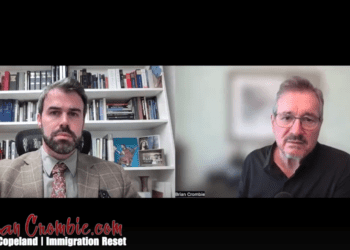This article originally appeared in the National Post.
By Aaron Wudrick and Jon Hartley, November 22, 2023
In Tuesday’s fiscal update, the Trudeau government found itself trying to bury the lede in a bad news story of bigger deficits, higher debt payments and a weakened economy.
Following a slew of opinion polls that show the Liberals trailing the opposition Conservatives by a widening margin, the update also exuded a palpable sense of urgency as the government scrambles to address a critical issue on which they were caught completely off guard: housing.
Housing has emerged, in recent months, as arguably the single biggest political concern in Canada. It impacts middle- and lower-income Canadians most severely and is a significant part of why the Liberals have been bleeding support amongst these key constituencies, which disproportionately include younger Canadians.
In response to their slide in the polls, the Liberals have belatedly started to act on the file — by removing the GST on new rental builds and dedicating $4 billion to a housing accelerator program that aims to incentivize municipalities to remove prohibitive zoning barriers. The fiscal update boasted that this fund has already signed agreements with nine cities to build 21,000 homes over the next three years, which sounds impressive until you consider that Canada needs approximately 3.5 million new homes by 2030 to fix the affordability crisis.
While any new housing supply will be welcome, the measures amount to knee-jerk reactions by a government that tries to solve problems by hastily showering them with money. While the Housing Accelerator Fund correctly focuses on scrapping restrictive zoning, the real goal should be to incentivize the construction of privately built housing on a mass scale, rather than simply subsidize additional public housing. The real cause of Canada’s housing shortage is not market failure but a series of policy failures on multiple fronts and levels.
Perhaps most alarming is the government’s assault on short-term rental housing by reducing tax deductions available to property owners, framed as a crusade against greedy landlords profiting from tourists while everyday Canadians scramble to keep a roof over their heads. The implicit assumption seems to be that, by making short-term rentals less attractive, these units will be magically transformed into long-term rental accommodations (which is wishful thinking, to say the least). In so doing, the government overlooks the diverse array of reasons Canadians choose to rent out properties on a short-term basis.
Flexibility — as facilitated by platforms like Airbnb — is essential for those who do not wish to commit to full-time landlord responsibilities. Additionally, Canadians may have family members who intermittently require housing, such as aging parents or university students. Long-term tenancy, burdened with compliance issues and eviction challenges, is unappealing to many property owners. If the government instead chose to make the work of a landlord more attractive, it wouldn’t need to make short-term rentals less appealing.
Even more troubling is the broader trend of the government encroaching on Canadians’ property rights, ostensibly to compensate for its own housing policy failures. Dictating how citizens use their own property raises serious concerns about the government overstepping its bounds. In a country with well-established property rights, it is inappropriate and misguided for the government to meddle in the choices of families seeking to make ends meet by renting out their properties.
On a practical level, the government’s chosen channels to tackle housing — relying on more government subsidies, undermining the short-term rental market, discouraging institutional investors from buying single-family homes and foreign buyer taxes or bans — will ultimately be too small to meaningfully grow the total stock of housing but will cause a number of harmful unintended consequences.
The bottom line is this: to make any kind of impact on housing affordability at scale, especially for individuals living below the median income, Canada needs a much larger housing supply — and the amount of capital investment this requires can only come from private developers.
All in all, the fiscal update shows the slapdash nature of the Trudeau government’s frantic attempts to address housing concerns, as well as its unfortunate inclination to resort to heavy-handed interventions, particularly in the realm of short-term rentals. The government’s indifference to infringing on private property rights underscores the need for a more supply-oriented approach to housing policy — one that works with, rather than against, the rights of property owners.
Aaron Wudrick is the domestic policy director at the Macdonald-Laurier Institute.
Jon Hartley is a senior fellow at the Macdonald-Laurier Institute and a research fellow at the Foundation for Research on Equal Opportunity.






